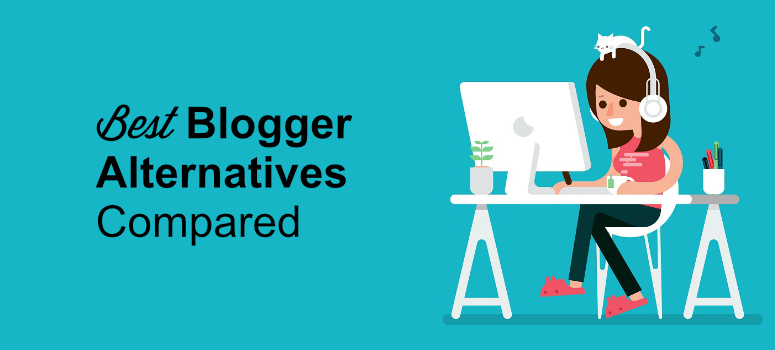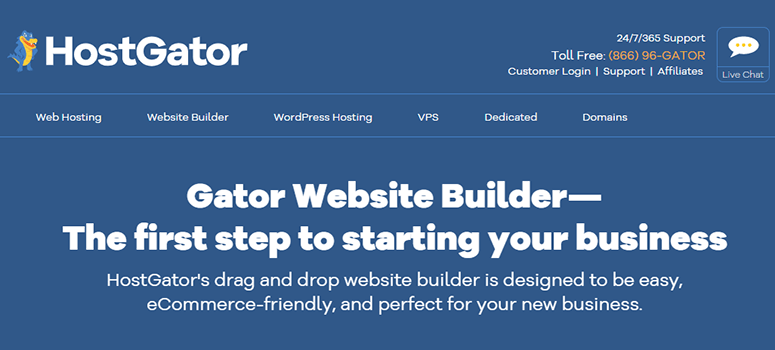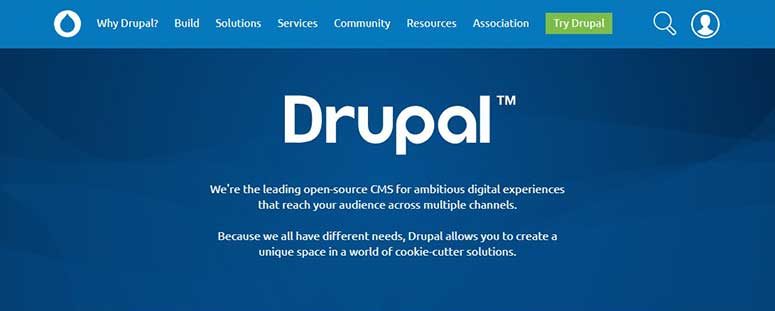
Are you looking for popular alternatives to Blogger?
Blogger.com is a blogging platform by Google that lets you start your own blog for free of cost.
Many users, even in our IsItWP team, start with Blogger. As they grow their blog, they’ll look for a better alternative that makes it easy to scale and grow.
For this reason, we have tested different Blogger alternatives to see which one is the best for you. We look at pricing, features, ease of use, and more to see the right fit.
We also look at other third-party, unbiased websites to see what others think about the blogging options.
In this article, we’ll be comparing some of the best Blogger alternatives and help you decide which one is best for your needs.
Why Look for Blogger Alternatives
Since Blogger is a free platform, it comes with several limitations. Here are some of the cons of using Blogger that might make you look for Blogger competitors.
- You don’t own your blog: Blogger is a platform that’s owned by Google. This means Google can dismiss any blog at any time without any prior notice.
- Limited customization options: You can add built-in gadgets like ads, subscription links, contact form, etc to your Blogger site. But these gadgets offer a limited possibility for customization which can be really frustrating.
- Limited features: As you grow your blog, you might want to integrate additional features into your blog, like membership or eCommerce store. With Blogger, you can’t make it happen.
- Limited design options: Compared to other platforms like WordPress, Blogger offers limited design options.
Let’s now move on to check out some of the best Blogger alternatives that you try out.
1. WordPress

WordPress is a free and open-source platform that lets you create a blog without any professional help. It is so flexible that you can build any kind of website with ease.
It offers thousands of themes and plugins, both free and premium, with which you can enhance your blog’s appearance and extend its features.
The plugins also allow you to translate your site to several other languages, add social share features, and do a lot more.
You can use the built-in page builder Gutenberg (block editor) to customize your site.
To add to this, there are also plenty of powerful page builders you can buy to use on top of WordPress including SeedProd and Thrive Suite.
These make it easy to design your blog visually with readymade templates and drag and drop functionality.
For more details, check out Blogger vs. WordPress. Plus, see our complete WordPress review.
2. Web.com
Web.com is a popular do-it-yourself website builder that’s both easy to use and very affordable.
With Web.com, you can quickly build a blog in 3 steps; simply pick your domain name, choose a package, and drag and drop your design.
Web.com also offers tons of professionally designed website templates that can be customized by pointing and clicking. And you can add features like photo galleries, videos, contact forms, and social media buttons in a snap.
Aside from a free domain name, all Web.com plans also include a business email address, SEO tools, autosave & backup, website analytics, and more.
3. Gator Builder

The Gator Builder by Hostgator is another drag and drop builder that allows you to get your blog up and running. With your blog, you can even integrate a full-fledged eCommerce platform quickly and easily
The best thing about this builder is that it offers everything you need to get started, from web hosting and free domain names to SSL.
You might also want to check out our Gator Website Builder review.
4. Joomla

Joomla is a free and open-source content management platform that lets you create a blog like a pro. Many hosting providers offer a quick Joomla installation option so you can have your Joomla site ready without any extra effort.
Like WordPress, Joomla is also built with non-web developers in mind, so it is shipped with great customization options you’ll love.
You can choose from a lot of templates and extensions. Like Blogger, Joomla templates also let you change your blog’s appearance.
With Joomla extensions, you can add additional features to your site. Plus, you can translate your site to several other languages without the help of any third-party extension.
5. Drupal

Drupal is yet another Blogger alternative, which is also a free and open-source platform that makes it easy to start a blog and all sorts of websites. You can install a Drupal theme that meets your needs to change the appearance. To extend your features, you can install modules on your Drupal site.
Unlike other Blogger alternatives, Drupal stays ahead of the curve when it comes to security. They are transparent about their security and publish a detailed security report.
If you’re confused about which of the above three platforms can be your best choice, you can read our comparison post on WordPress vs. Joomla vs. Drupal here.
6. Tumblr

Tumblr is another Blogger alternative that you might want to try. It is a blogging, microblogging, and social networking tool that lets you effortlessly share anything on the web, including photos, quotes, etc.
Tumblr appears to have a younger user demographic in comparison with other social networks.
7. Weebly

Weebly is a popular website builder that lets you build any kind of website, including a blog. Just like Blogger.com, Weebly is also a hosted platform that lets you easily build a blog from the ground up.
Once you sign up for a Weebly site, you can choose from one of its themes to give your site the visual appeal it needs.
To extend your functions, Weebly offers hundreds of apps.
Check out this Weebly review to learn more.
8. Medium

Medium is an online publishing platform perfect for budding writers. On Medium, you can publish your work and share it with others in the community.
If a reader on Medium likes your work they can appreciate it by clapping for you, by clicking a clap button.
Medium allows its users to read 3 articles a day. If you exceed the limit and still want to read more posts, you can become a member by paying $5. If another user “claps” your article, Medium will start paying you.
Congratulations! You now have a better understanding of the best Blogger alternatives. If you have more questions, check our FAQs below.
FAQs: Best Blogger Alternatives
How can you make money as a blogger?
You can make money as a blogger in different ways. The simplest way is to display ads from platforms like Google AdSense or by directly selling ad space on your site. This allows you to earn revenue based on clicks or impressions. Another way is through sponsored content, where companies pay you to promote their posts. Try affiliate marketing, which earns you commissions through promoted products. Other ways include selling your own products or services, offering premium content through memberships, and exploring freelance opportunities.
What is the difference between a blogger vs vlogger?
Bloggers primarily use written content, such as articles or posts, to share information, insights, opinions, or stories on their blog platforms. On the other hand, vloggers, short for video bloggers, create content primarily in video format. They record themselves talking, demonstrating, or engaging in various activities, which they then upload to platforms like YouTube or Vimeo. They can also upload their content to popular social media platforms like Instagram and TikTok.
What is the difference between Blogger and WordPress?
Blogger is a Google-owned blogging platform. It offers an easy-to-use interface, built-in hosting, and customization options for creating and managing blogs, making it great for beginners. But, when looking at Blogger vs WordPress, Blogger has limited flexibility in terms of design and functionality.
WordPress, on the other hand, is a Content Management System (CMS) that offers more flexibility. It allows you to create not only blogs but also complex websites such as e-commerce stores, forums, and portfolios. It has many customization options through themes and plugins, enabling you to tailor your websites to your specific needs.
Is Blogger dead?
No, Blogger.com is not dead. It is still active and used by plenty of bloggers. But, it is not as popular as it once was. Other blogging platforms like WordPress, Tumblr, and Medium have taken over because of more customization options and larger user bases. But, Blogger still serves as a great option for those looking to start a blog. Its simplicity, integration with Google services, and free hosting still attract many users. It is still a great place for beginners or individuals looking for a straightforward blogging experience without the need for advanced customization options.
That’s it! We hope you found our article on the best blogger alternatives helpful. You might also want to check out these posts:
- Best blogging platforms for beginners
- How to start a WordPress blog
- Best blog tools to double traffic and growth
These resources will give you the best platforms, tools, and tutorials that you can choose from to get started with your blog the right way.


Comments Leave a Reply